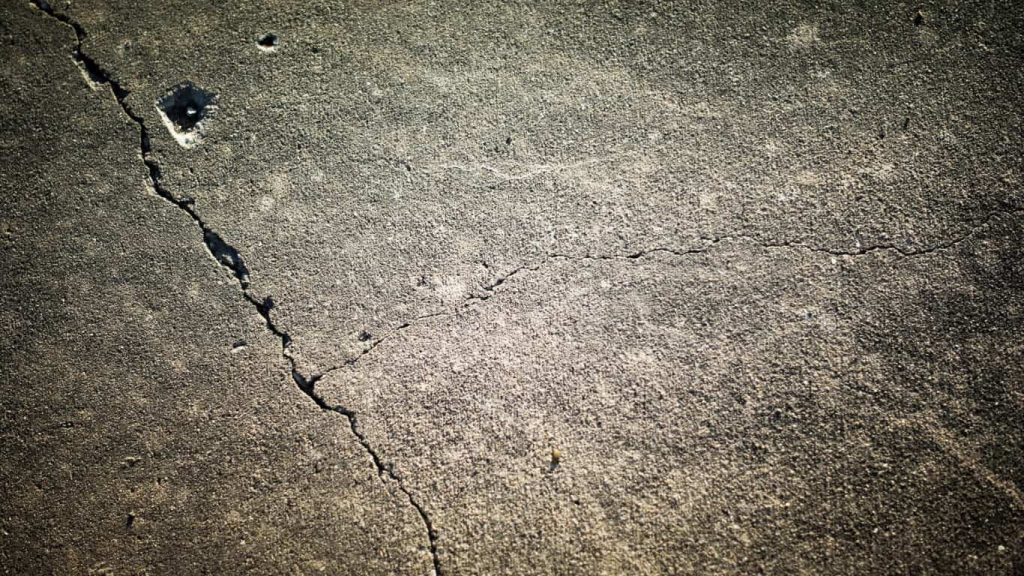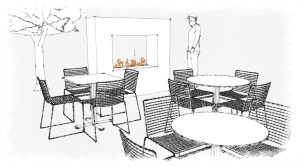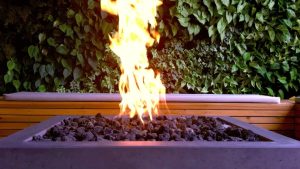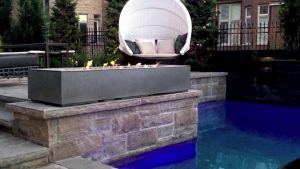Ah, the age-old question! Will the concrete, or in the case of Paloform, will concrete fire pits crack? The short answer is no. For the long answer, read on…
Concrete, as it is widely used in bridges, foundations, and other construction applications, has gotten a bit of a bad rep. Yes, you often see concrete in these kinds of applications with cracks in it, but this generally happens only when the concrete is asked to do something it shouldn’t. Preventing this kind of cracking generally comes down to good design – the design of the concrete mix itself and the design of the installation.
One significant characteristic of concrete that is not immediately apparent is that concrete moves. Not in any way that is detectable by the naked eye, but as concrete is curing, it is shrinking and shifting on a minute level, and this is the main cause of cracking. If the shape of a concrete piece, whether it is a floor slab, sidewalk, or fire bowl, is designed well, it will allow for the natural shrinkage of the concrete.
In other words, well-designed concrete pieces will not restrict the movement of the material during shrinkage. When a constriction is unavoidable, the piece should be designed with a control joint: a deliberate gap or weak point in the concrete that will force the concrete to crack in a specific spot. This is why there are always (proverbial) cracks in the pavement.
Limiting shrinkage in concrete can be achieved by good mix design. That is, using good ingredients and proportioning them correctly. This can also help to create higher-strength concrete, which also mitigates the potential for cracking.
Movement in concrete can also be due to thermal expansion and contraction – when concrete is exposed to fluctuations in temperature. This is of particular concern when designing around something hot like, say, a fireplace. Well, the same general rule applies: concrete is going to move, so don’t restrict it.
When we design our concrete fire pits, we design components so that they can expand and contract freely themselves, and also independently of the substrate upon which they are set. We also use high-performance blends, which are typically three times the strength of your average sidewalk.
So under normal circumstances, the concrete of our outdoor firepits will not crack. Abnormal circumstances would be things like trauma or if they were directly exposed to fire for sustained periods of time. This brings me to my last point: concrete is not “bomb-proof” or fire-proof.
Ultimately, most concrete is only as strong as the substrate upon which it is set. This is why foundations can crack if the ground underneath them shifts too much and also why concrete tiles can crack if it set on a floor or wall that significantly shifts. Further, though concrete can withstand significant shifts in temperature, it will break down if exposed to direct open flame.
In a future FAQ post, I’ll discuss the freeze-thaw resistance of concrete outdoor fire pits.
















